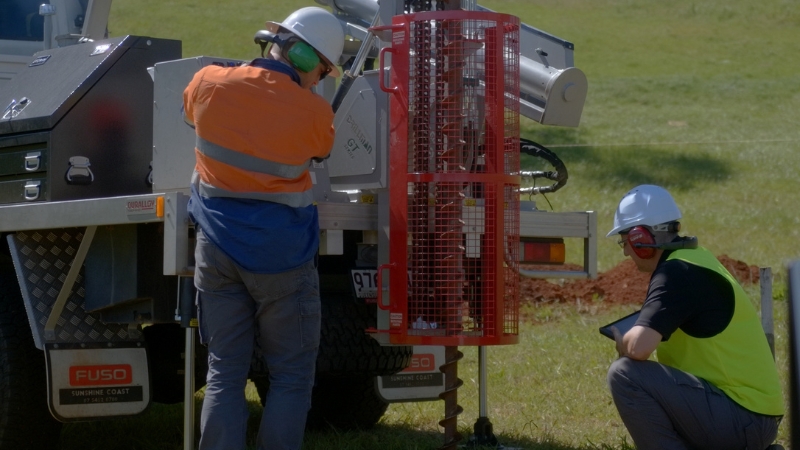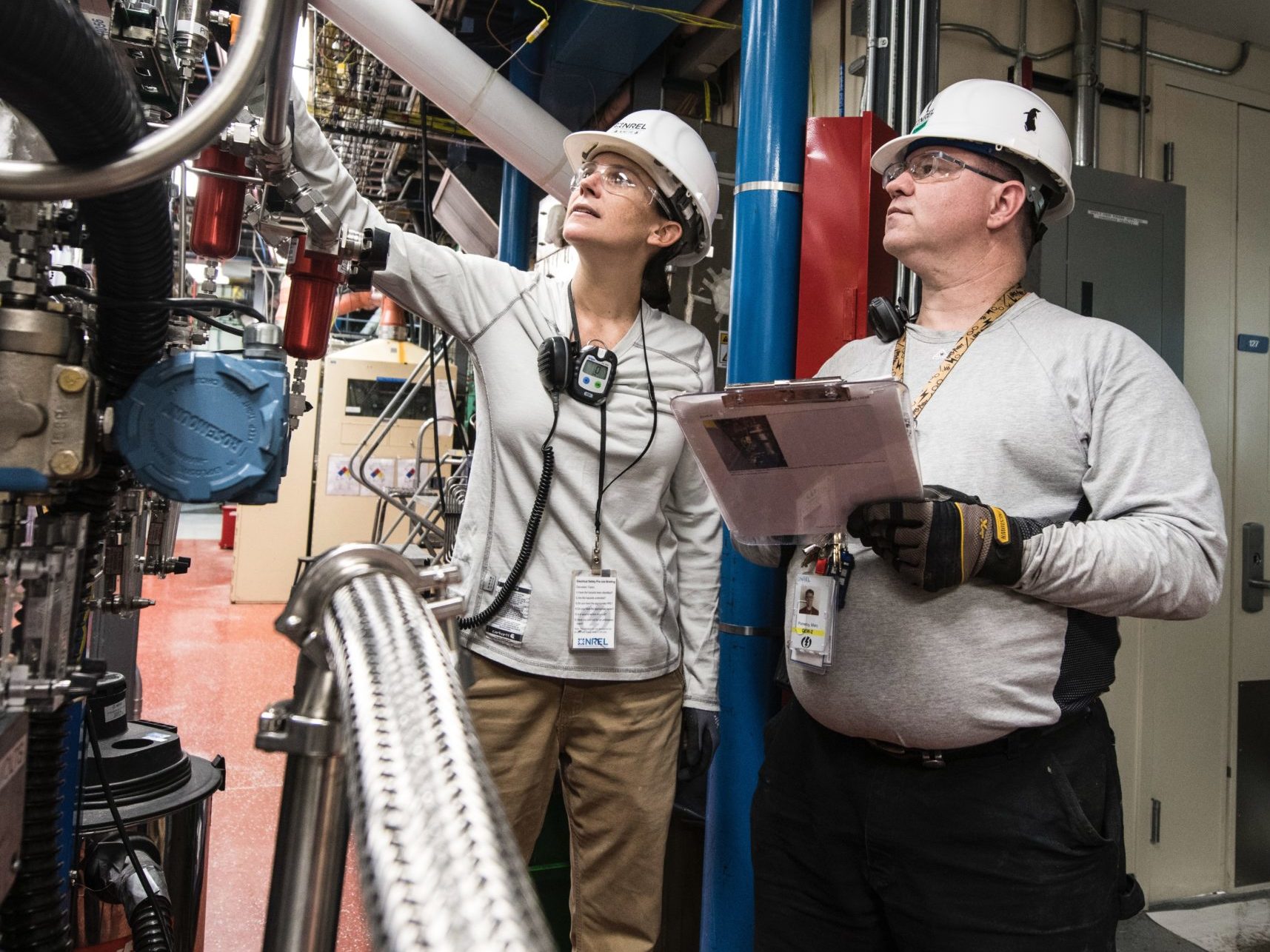Navigating the Complexities of Geotechnical Eng Projects
Navigating the Complexities of Geotechnical Eng Projects
Blog Article
Comprehending the Comprehensive Duty of Geotechnical Engineers in Ground Investigation and Dirt Evaluation for Building And Construction Jobs
Geotechnical designers are essential to the success of construction projects, supplying necessary understandings with detailed ground investigations and soil analysis. Their competence in analyzing soil actions and using innovative testing methods informs crucial choices that copyright architectural stability and safety and security.
Function of Geotechnical Designers
The pivotal role of geotechnical designers in building jobs can not be overstated, as they give crucial understandings right into soil actions and site problems. These specialists are tasked with assessing the viability of the ground for various kinds of frameworks, making certain safety and security and security throughout the construction procedure. Their competence includes a vast array of tasks, including website characterization, dirt sampling, and lab screening, which are vital for establishing the physical and mechanical properties of the dirt.
Geotechnical designers utilize their findings to create fundamental designs that accommodate load-bearing requirements and mitigate threats associated with soil settlement, liquefaction, and slope security. They play a crucial function in determining prospective hazards, such as groundwater fluctuations and contamination, which can dramatically impact project practicality. They work together with engineers, civil engineers, and contractors to make certain that geotechnical factors to consider are incorporated right into the general layout and building and construction phases.
Ground Investigation Strategies
Ground investigation methods develop the foundation of geotechnical design, enabling designers to obtain an extensive understanding of subsurface problems. These techniques are important for analyzing dirt properties, establishing groundwater degrees, and identifying potential geological hazards.
Common approaches consist of borehole exploration, which allows for the removal of soil samples at numerous midsts, offering critical data for evaluation. Furthermore, sitting screening strategies, such as Basic Infiltration Examinations (SPT) and Cone Infiltration Examinations (CPT), are utilized to examine dirt strength and density straight in the ground.
Geophysical techniques additionally play a substantial duty in ground investigations. Techniques such as seismic studies and electric resistivity tomography aid examine subsurface features without comprehensive excavation. geotechnical eng. These non-invasive approaches are especially helpful in sensitive or big locations where interruption need to be reduced
In addition, exploratory trenches can be excavated to aesthetically examine soil layers and recognize any kind of abnormalities. Each of these techniques adds unique understandings, permitting geotechnical designers to establish exact website analyses and inform style choices. In recap, a mix of these ground examination methods is important for successful construction tasks, making sure safety and security and architectural honesty.
Dirt Evaluation Methods
Dirt evaluation methods are crucial for understanding the chemical and physical properties of dirt, which directly affect the design and construction of foundations and other frameworks. Various methods are utilized to assess dirt characteristics, ensuring that geotechnical engineers acquire accurate information for informed decision-making.
One commonly used approach is grain size evaluation, which establishes the circulation of fragment dimensions within a soil sample. This is important for categorizing soil types and anticipating their behavior under load. One more important technique is Atterberg restrictions screening, which examines the plasticity and dampness material of fine-grained soils, providing insights right into their design buildings.

Area tests, such as Conventional Infiltration Examinations (SPT) and Cone Penetration Examinations (CPT), deal important in-situ data regarding dirt strength and stratification. Collectively, these soil analysis approaches develop the foundation of geotechnical examination, permitting designers to develop efficient and secure structures customized to the details problems of the site.
Risk Reduction Strategies
Carrying out efficient risk mitigation techniques is vital for geotechnical designers to address potential difficulties in building click for source jobs. These strategies are essential in identifying, examining, and managing dangers connected with dirt problems, site security, and groundwater variations, which can negatively impact project outcomes.
One main approach involves carrying out thorough site examinations that make use of innovative geophysical techniques and extensive dirt tasting. By obtaining precise data on subsurface problems, designers can make enlightened choices on style and construction methods. In addition, employing predictive modeling tools permits the simulation of various scenarios, allowing designers to foresee potential issues and carry out preventive procedures.
Furthermore, developing clear communication channels amongst task stakeholders cultivates a collaborative strategy to risk administration. Normal updates and assessments make sure that all parties recognize the developing website problems and can adapt their approaches as necessary.

Effect On Construction Projects
The effectiveness of risk mitigation strategies straight affects the total success of building and official website construction tasks. Geotechnical engineers play a pivotal role in this domain name, as their knowledge in ground investigation and soil evaluation educates essential choices throughout the building process. By precisely examining dirt conditions and identifying potential threats, these professionals allow project groups to design efficient solutions that lower threats related to ground instability, water seepage, and other geotechnical difficulties.
The effect of extensive geotechnical analysis is apparent in various facets of building projects, consisting of expense management, task timelines, and structural integrity. Early recognition of problems enables prompt interventions, decreasing expensive delays and spending plan overruns. Additionally, a comprehensive understanding of website conditions boosts the design and design process, ensuring that frameworks are built to hold up against environmental stress and potential all-natural disasters.
Eventually, the payments of geotechnical engineers are essential to the effective execution of building tasks. Their work not only promotes security and conformity with policies yet also enhances the long-lasting sustainability of frameworks, ensuring that they carry out properly throughout their intended lifespan. The partnership in between other stakeholders and geotechnical teams is necessary for attaining optimal outcomes in building and construction endeavors.
Conclusion
Finally, geotechnical designers execute an essential function in building projects with thorough ground examinations and dirt evaluations. Their competence in analyzing dirt actions, using numerous examination strategies, and applying threat reduction approaches considerably adds to the architectural honesty and safety of built atmospheres. By teaming up with multidisciplinary groups, these professionals enhance task effectiveness and ensure compliance with safety and security criteria, inevitably resulting in effective construction end results and decreased prospective threats.
Geotechnical engineers are important to the success of construction projects, supplying essential insights with extensive ground examinations and dirt evaluation.The crucial function of geotechnical engineers in construction jobs can not be overemphasized, as they give necessary insights right into dirt behavior and website conditions. Their knowledge encompasses a vast variety of activities, consisting of site characterization, dirt sampling, and lab testing, which are essential for determining the mechanical and physical residential properties of the soil.
By properly examining dirt conditions and recognizing prospective threats, these professionals make it possible for job groups to devise effective services that reduce dangers associated with ground instability, water infiltration, and various other geotechnical challenges.
In final thought, geotechnical designers carry out a crucial function in building and construction projects with comprehensive ground examinations and dirt analyses.
Report this page